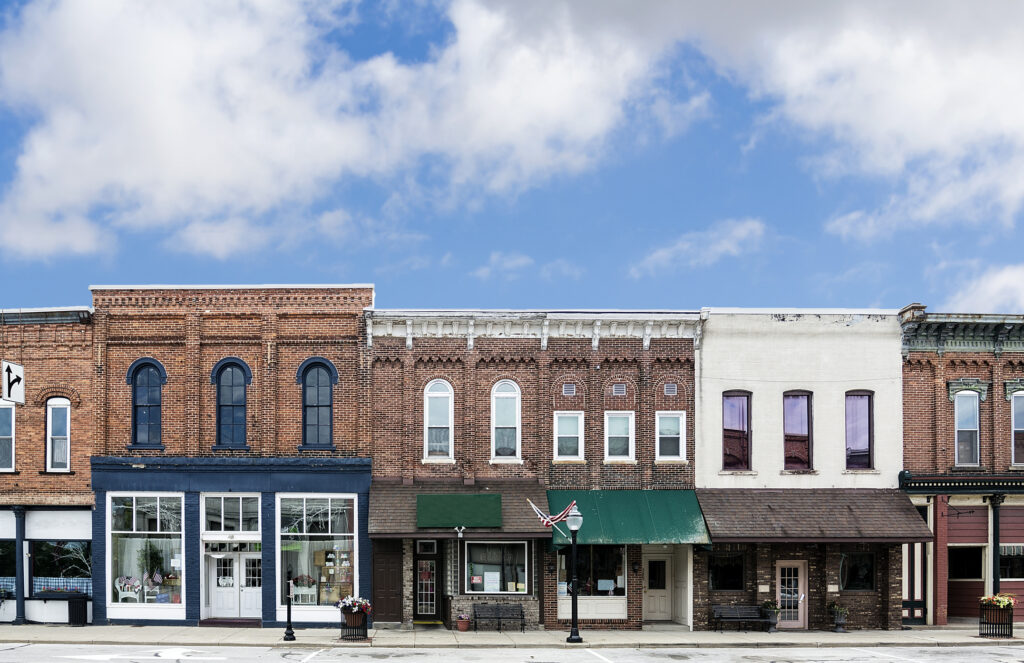Vinyl and record stores making a comeback

In the last two years, Daniel Bosman says he hasn’t purchased one CD, and his collection of CDs takes up only a small span of shelf space in his house.
Now, almost every album he buys is pressed on vinyl.
Bosman’s love for vinyl is apparent in his house in the Drake neighborhood. The third floor is reserved almost entirely for vinyl storage, and framed albums from artists such as William Elliot Whitmore and Daniel Johnston decorate the walls.
For the last three years, Bosman has hosted “Scented Vinyl,” a radio show produced live at Mars Cafe, where he plays his albums and invites local artists to share their favorite records.
“A lot of people still buy vinyl, probably more than you would initially think,” he said. “Either they still buy vinyl or they have records that they have gotten from their parents or their grandparents that have that history that an MP3 can’t have.”
Whether it’s the difference in sound quality, the nostalgia of a used record or the aesthetic of a large, full-color album cover, vinyl is coming back, and businesses in Des Moines are taking advantage of its resurgence.
“I think the reason why people have fallen in love with records again is you’ve got cover art that’s 12 by 12 (inches), full color usually; a lot of time there’s liner notes on the inside,” said Nate Niceswanger, owner of Zzz Records, 2200 Ingersoll Ave. “Whereas if you compare it to a CD, which is only 5 inches, it doesn’t have the same effect on people.”
Like many record shop owners in Des Moines, Niceswanger said he had been collecting vinyl records for years and eventually got so many that the next logical thing to do was to open a store.
Matt Storms, co-owner of Red Rooster Records 509 Euclid Ave., said his collection grew so large he had “no choice” but to open up a store.
When he was about 11 years old, Storms started exploring his neighbor’s record collection and eventually was hooked on the classic sound of old records.
“Most of my favorite music is ’50s and ’60s,” he said. “Mostly blues, rockabilly, garage-rock, different stuff.”
Like Storms, who developed an interest in vinyl at a young age, shop owners said a lot of the driving force behind the market is the younger audience – some of whom were not even alive when vinyl faded and CDs entered the market.
“I’ve seen a lot of young people, people under the age of 30 we’ll say, who have really been getting into classic rock,” Niceswanger said. “They’re going through their parents’ collections and they’re pulling out their Beatles, (Rolling) Stones, Doors, their Led Zeppelins and Janis Joplins, and they are really getting into it.”
He said when young people discover old vinyl records, they are often surprised at the quality, because older artists knew the “art of making a good album,” one that is enjoyable all the way through.
“That’s something a lot of current artists aren’t very good at,” Niceswanger said.
Another factor that brings customers into the local stores is how affordable used vinyl records can be, Storms said.
“You take a couple that go out to a restaurant that’s expensive, you can easily spend $50. A lot of times, you can get 10 records for that much,” he said. “And it’s something palpable and it’s tangible and something you can have for years and years.”
But one of the biggest draws is the sound quality of the recordings. Bosman said he has noticed that MP3s lose quality over time, depending on their downloading source and how many times they’re shared with other people. Vinyl, though, stays consistent.
“I’m not an audio expert,” he said, “but I know a lot of people say that vinyl has a nice, cleaner, softer sound to it.”
Brad Hamilton, owner of Capital Music in the East Village, knows that the sound of vinyl is much better than that of CDs – more production goes into making a vinyl record, he said. And, in his opinion, vinyl needs to be played on an old turntable, which is why he started rebuilding them and selling them along with the records.
“There’s not anyplace to get them, and you don’t want to buy a new one,” he said. “They’re just junk. Unless you spend $1,000 for the super-high-end stuff.”
Many of the shops in Des Moines mostly carry old used vinyl records that customers bring in to sell, but as the medium has made a comeback, artists are starting to release their music on vinyl once again.
Bosman said a new trend among artists is to include a digital download code free with the vinyl release so consumers can buy the vinyl but still can have the album on their computer.
One such artist is Jack White, who gained fame as the frontman of the White Stripes. White also owns a recording studio and releases all the studio’s recordings on vinyl.
The Deadweather, White’s most recent band, actually recorded onto vinyl during production. Because of that, the album won’t sound the same on CD when it is transferred from the vinyl recordings, Bosman said.
“It was recorded for the record,” he said. “So if you want it for the sound that was intended, you get the vinyl.”
Although releasing a vinyl can be more expensive for the artist, local and smaller artists never really stopped releasing albums on vinyl. Bosman has vinyls from Slipknot and the Kings of Leon dating back to the 1990s, before either band made it big, that are now worth a lot because of their rarity.
Recently, Ames-based The Poison Control Center released “Sad Sour Future” and Des Moines rap artists Maxilla Blue released “Vol. 2,” both on vinyl.
“I think vinyl has a really deep history to it, you know, going back to the beginnings of recorded music and stuff,” Bosman said. “So I think a lot of local artists that I talk to are excited to join that with putting out a 45. They know they’re not going to make money on it, and it’s probably not the most beneficial way to get their music out there now; it’s just exciting to join that history.”
For local shops, the resurgence of vinyl has brought in good business.
“It’s one of those things where it changes every month,” Storms said. “April of this year was very slow. May has been very good – been one of the best months since we opened. 2009 was our best year ever.”
Niceswanger, Storms and Hamilton all said they’ve seen plenty of gems walk into their shops, but even though they collect vinyl, they usually try to sell them.
“That’s one of the hard things about this job, as a record collector,” Niceswanger said. “I see things come in all the time that I think would be great to have. But you kind of have to limit yourself. Otherwise you have a house full of records, and you’re not selling anything.”











